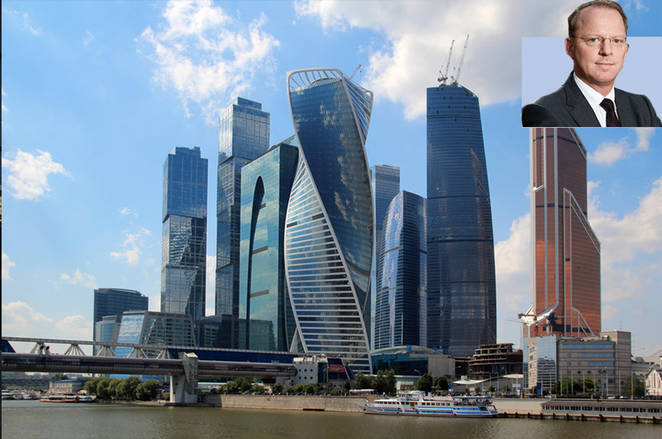The sanctions have contributed to the collapse of the Russian ruble and the Russian financial crisis from 2014 onwards.
In response to the Crimean crisis and the subsequent annexation of Crimea by the Russian Federation two years ago, some governments and international organisations, led by the United States and European Union, imposed sanctions on Russian individuals and businesses. As the unrest expanded into other parts of southern and eastern Ukraine, and later escalated into the ongoing war in the Donbass region, the scope of the sanctions increased.
The Russian government responded in kind, with sanctions against some Canadian and American individuals and, in August 2014, with a total ban on food imports from the European Union, United States, Norway, Canada and Australia.
The sanctions have contributed to the collapse of the Russian ruble and the Russian financial crisis from 2014 onwards. They have also caused economic damage to a number of EU countries, with the total losses estimated at €100 billion.
We were interested in knowing how the Russian market is withstanding the pressure and contacted our EJ member Thomas Brand, German lawyer practising law in Russia, for his insight on the ground.
“The political situation in Russia is stable and there is no need to worry as far as potential or current investors are concerned. Most countries have ratified investment protection agreements with Russia – this means investments are safe. The government is doing a lot to improve the investment climate – with great success.
Russia climbed to rank 51 in the “Doing Business Report of the World Bank” this year. Nonetheless, the sanctions against Russia and the Russian sanctions against Europe hinder the trade relationships and there is a lack of trust on both sides – this has to be overcome over the next years because it creates a psychological barrier in investors’ minds. Moreover, I do believe that the West should show more respect towards Russia and Russians. I am convinced that, despite the general opinions, Russia is not an aggressive State, and the Russians are very friendly and open minded people.
The Russian economy is picking up slowly, but the weak ruble still makes it expensive for Russian companies to buy foreign products and low oil price puts pressure on the Russian budget. However, assets are relatively cheap in Russia at the moment, which makes it interesting for foreign investors to buy in Russia. We just all hope taxes will not increase though because that would put additional strain on businesses & citizens”.
On 1st January 2015, the Eurasian Economic Union (EAEU) was founded by Belarus, Kazakhstan and Russia. New members also included Armenia and Kyrgyzstan. The EAEU has an integrated single market of approximately 190 million people and – similar to the European Union - introduced the free movement of goods, capital, services and people and provides for common energy, transport, and agriculture policies. Ties between Russia and China became closer after sanctions were introduced.
According to Thomas, this also creates significant opportunities for western companies investing in Russia or one of the EAEU member States. Already now investors are considering to invest e.g. either in Russia or Belarus – which has also improved the investment framework and still is in many regards cheaper than Russia (e.g. labour force and construction costs).
“However”, says Thomas, “the political situation in some member States is not sufficient enough and the markets are relatively small, therefore, Russia will be the main focus for most investors. Nevertheless, both Belarus and Kazakhstan attract foreign investors, whereas Kazakhstan has huge natural resources which Belarus does not have. From a legal point of view, the member states of the EAEU will follow Russia´s example towards a more liberal and open investment climate – even though to a certain extent we can see protectionism in certain fields. Currently import substitution creates and big hurdle for some investors. The Russian government wants to increase the value chain in Russia, therefore an important topic at the moment is the production localisation of foreign companies in Russia which shall be stimulated e.g. by the special investment contract and the tax benefits it grants.
Having the EU in the West and the EAEU in the East might only be the beginning for the creation of a free trade zone from Lisbon to Vladivostok – this idea is being discussed by politicians and business associations on both sides – but which has of course been negatively influenced by the current political situation. I believe this discussion should be intensified and both sides should understand the necessity to work closely together as Europeans and overcome mistrust”.
Overall, it is important to underline the fact that the current climate has had a negative impact on companies entering the Russian market – e.g. in the mechanical engineering and automotive industry - and some even closed their Russian operations due to the economic situation. Additionally, the new law on mass media prohibited foreign companies to hold more than 20 % in Russian media last year, so foreign media companies were practically forced to sell their assets (like e.g. German publishing house Axel Springer AG). Many companies restructured their activities and laid off employees.
Thomas has also witnessed an increase of insolvencies and litigation groups are currently busy because many debtors delay payment or do not pay at all. He comments : “we are advising more on crisis issues than in normal times. Nevertheless, there are still investors that are going against the general trend in order to be prepared once the economy picks up once again, so there are investments and M&A activities. It always good to remind ourselves that Russia is he biggest country in the world with a strong culture, enormous natural resources and human capital. To me, there’s absolutely no doubt that Russia ’s best years are yet to come”.
When it comes to the Russian legal system properly speaking, its framework seems to be similar to European jurisdictions – it is a civil law jurisdiction - and the latest reforms bring Russia closer to European standards. Thomas adds : ‘it is important to point out that laws are only as good as the people implementing them, and there are unfortunately certain discrepancies that do not make things easy. For example, there are certain deficits in the legal system and corruption is still an issue in some parts of the legal system. Our role is to explain to our foreign clients how the laws and the system works in Russia – and that is not always easy. My general piece of advice is to always be 100 percent compliant, no matter where you work. The “wild times” in Russia are over for sure and long term investments need to be established on proper grounds”.


